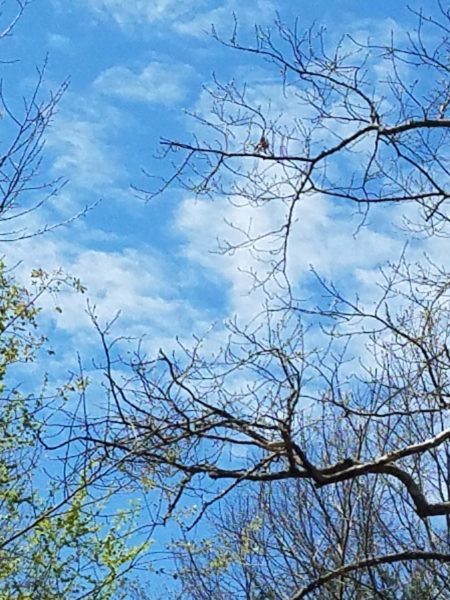 Now that majority of us are working, studying, and doing everything from home, the importance of self-motivation as a critical inner resource cannot be ignored. We are expressions of diversity in many ways, and yet—
Now that majority of us are working, studying, and doing everything from home, the importance of self-motivation as a critical inner resource cannot be ignored. We are expressions of diversity in many ways, and yet—
two kinds of groups are emerging, generally speaking:
Those who continue to find beauty and inspiration to do what they must when no one is looking. When there’s no roll call, no grades, no school, office, or institutional structure to go to—they still get up anyway, show up to life, to find and create something meaningful. They’re driven to learn, to improve their lives and solve problems, not because somebody is telling them to, but because they want to.
Then there’s the other group—listless, bored out of their heads, lethargic, bitter even about the disruption and injustice of life.
There are many variables involved; sickness, layoffs, idleness, family dynamics, and so on. In the event that one is in good health, has access to the internet, a loving family, a comfortable workspace, and still finds no motivation whatsoever to make a difference whichever way possible, that’s the person I’m thinking about.
The dictionary defines self-motivation as the desire or willingness to “do or achieve something because of one’s own enthusiasm or interest, without needing pressure from others.” Lack of self-motivation is the main challenge that most students are facing and other people whose commute to work has changed drastically. All things around us are always changing, and yet, we had all gotten used to a false sense of permanency just because we could predict to an accurate degree our everyday actions that they became routine.
My admiration goes to those who have quickly adjusted and embraced the “new” by slowing down, pausing, reflecting, resting, and then—figured out something fulfilling to work on in their yards and homes. They’ve gathered paint for the wall that’s been peeling, fixed the leaky toilet, cleared a patch of ground and planted seeds bought from the farmers market a year ago. They’ve registered for an online grammar course they’d postponed indefinitely, picked up the dusty guitar and fine-tuned it, braided their daughter’s hair, their own, returned to cooking; following old recipes, and so on, without a teacher, boss, or parent reminding them to do so. That’s the kind of self-motivation we all need to resurrect, an essential inner resource, especially during this period of coronavirus.
We discover and develop a number of inner resources early in childhood. Some of us lose them as we grow older and start to completely rely on others for guidance and validation. Some sharpen them by continuing to question everything, by engaging in a life-long search that generates more questions than answers. The first time I read John Berryman, I fell in love with Dream Song 14, especially the lines:
and moreover my mother told me as a boy
(repeatingly) ‘Ever to confess you’re bored
means you have no
Inner Resources.’ I conclude now I have no
inner resources, because I am heavy bored.
These lines had a significant impact on me. After reading them, I was relieved to reflect on my life and discover that I’d never been bored. I was 14 years old and in senior two of my high school. I also realized that I’d kept potential boredom at bay by immersing myself in reading, writing, cleaning, gardening, cooking, washing, ironing clothes, fetching water, and making toys with banana fibers, cars out of wires, and my favorite—building houses using bottle tops. Before I hit double-digits, I spent a lot of time looking for bottle tops. For this reason, I was allowed to go to bars. Now that I think about it, I find it strange.
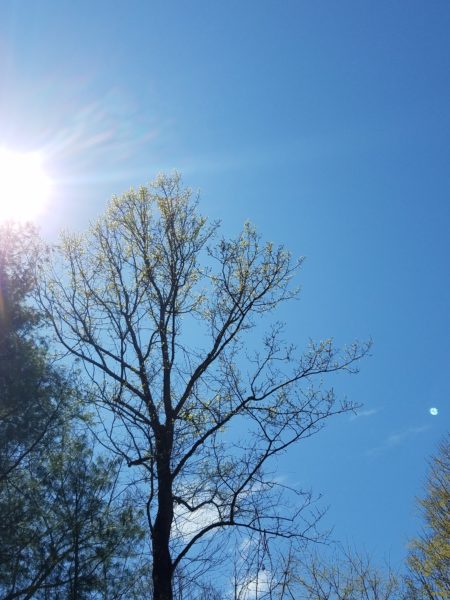 The fascination to build houses must have gripped me when I was about five years old and it didn’t fade until I was about nine. I built houses with rectangular and round shapes. It’s a wonder I’m not an architect. My parents were, well—shall we say economical? They did not gift me with a single toy, so I had to rely on myself to make toys, and later sell them to smaller kids. With time, I was believing in myself for everything, sort of. I was told that I had God and with God everything was possible, so we struck a deal. I had already discovered that with my parents, a lot was not possible! Quite frankly, the God I imagined was easier to deal with than my mother. Out of six children, only our last born was given a barbie doll. My mother had seen one on her visit to the town shops and our last born had been pestering her for another child so that she could babysit. My sister was about four. It was wise of my mother to find an alternative. I like to imagine that the kind of childhood I was exposed to is largely responsible for the making of me. And I also think that we are all born with self-motivation and keen imagination but as the years go by, something happens.
The fascination to build houses must have gripped me when I was about five years old and it didn’t fade until I was about nine. I built houses with rectangular and round shapes. It’s a wonder I’m not an architect. My parents were, well—shall we say economical? They did not gift me with a single toy, so I had to rely on myself to make toys, and later sell them to smaller kids. With time, I was believing in myself for everything, sort of. I was told that I had God and with God everything was possible, so we struck a deal. I had already discovered that with my parents, a lot was not possible! Quite frankly, the God I imagined was easier to deal with than my mother. Out of six children, only our last born was given a barbie doll. My mother had seen one on her visit to the town shops and our last born had been pestering her for another child so that she could babysit. My sister was about four. It was wise of my mother to find an alternative. I like to imagine that the kind of childhood I was exposed to is largely responsible for the making of me. And I also think that we are all born with self-motivation and keen imagination but as the years go by, something happens.
For instance, all my nieces and nephews knew how to draw God when they were very young. They would look up, curiosity sparkling in their eyes, then grab their crayons and colored pencils, hands tingling with a sense of wonder. They would admit not knowing the “what” of God, but they were excited to find out the “how” in the process, and they did. Now that they’re in high school and college, the very idea of drawing God is unimaginable. If you were to insist, they’d ask you how you want them to do it. They’d convince you that they can’t try on their own, unless you provide prompts and examples/samples. It’s the same with students coming into creative writing. Tell them to write about a chair and they’ll ask, what kind of chair, how many legs, colors… Only one person might ask, why a chair?
I miss watching a child that is aware of its ignorance and because of that gets immersed in creating, riding the wave of self-interest and enthusiasm instead of waiting to be given answers. This is my preferred manner of teaching and observation—facilitating craft as an important aspect of knowledge—while clarifying that no amount of craft accumulation can produce a novel or poem. It is in the practice of writing, questioning, and figuring out one’s style and voice that a writer is born. Even after one product is accomplished, the next project demands its own tools and methods different from previous ones, unless you’re the kind of artist that fabricates ten copies of the original. Read such an artist’s one book and you may as well have read all ten. Put differently, read the ten books only to realize the artist has written one book.
When we tell children often that they do not know, cannot know, simply because they are very young, and thus use their not-knowing as if it were a shameful thing rather than how we learn, we take away their empowerment and curiosity to figure things out on their own. By the time they join high school or college, they’re not in touch with their inner resources, they’ve lost self-motivation, inner confidence, vivacity, joy, and child-like sparkle. Because they expect all the answers from outside themselves, how could they flourish? This trends into the workforce once they’re employed. By this stage, they fully believe that their purpose at work is to do as they’re told. Some employers perpetrate this unfortunate attitude. One of the saddest things to encounter as a facilitator is to enter a classroom or workspace and behold a couple of participants looking zombified, totally uninterested not just in the course and materials but also in everything in life.
However daunting it may be for us adults (knowing some things that we know by virtue of having grown up), I think we could all utilize this lockdown by staying at home and cultivating self-motivation, inspiration, and other inner resources—by challenging ourselves to think consciously, critically, and then create what we do not know, do what we do not know within the safe environments of our homes. Michele Shea describes creativity as “…seeing something that doesn’t exist already. You need to find out how you can bring it into being and that way be a playmate with God.” With this idea, the main concern that comes to mind is: how can one create or pursue what they do not know?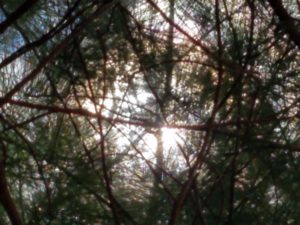
There must be room for error, risk, experimentation, ignorance, and a willingness to take up the challenge. The problem must be stated correctly—my favorite Chekhov said—and that’s the main task or obligation of the writer, the rest is figuring. With this model, a good artist is in fact, a scientist, and that covers all of us humans. The next step up is the ability to exist in “uncertainties, Mysteries, doubts, without any irritable reaching after fact and reason.” This, being the definition of “Negative Capability” that the romantic poet, John Keats, bequeathed us. Considering what we’re all going through at the moment, I feel like nurturing this skill could assist us in our transition. In a similar vein, Scott Fitzgerald’s The Crack-Up essay reveals that: “the test of a first-rate intelligence is the ability to hold two opposed ideas in the mind at the same time, and still retain the ability to function. One should, for example, be able to see that things are hopeless and yet be determined to make them otherwise.” Before Fitzgerald, trickster figures and W.E.B Du Bois wrestled with the same concept manifesting as double consciousness (this will be another lengthy topic for another time). Were these scholars aware that in their bewilderment they were paving a narrow but trusted path? Their not knowing but desiring to contained the birth and sustenance of creative passion, and it is what all innovators have in common. It resides at the root of self-motivated individuals who do not require anyone to knock on their doors and wake them up. They believe unwaveringly in their commitments and are even inclined to look foolish while they pursue what they do not know but wish to. Achieving a better life that benefits everyone is often the overarching goal.
Neurobiologist, Stuart Firestein, has written elaborately about ignorance as the “true engine” that drives scientific findings. In his book titled, Ignorance, he says, “it is exactly this “not knowing,” this puzzling over thorny questions or inexplicable data, that gets researchers into the lab early and keeps them there late, the thing that propels them, the very driving force of science.” Firestein distinguishes what we perceive of science (seeking after knowledge) from the actual nature of pursuit (using ignorance) in order to formulate accurate questions and hopefully stumble into new levels of inquiry. I think this is why good gurus, scientists or not, never give answers but point towards what lies inside the individual. Some find it frustrating while others become exhilarated. But it’s not always “either/or.” I think it’s the possibility of both sides coexisting that awakens, which may not be different from an act of faith the Bible defines as: “the substance of things hoped for, the evidence of things not seen.” Now, isn’t it interesting to consider initial approaches in science, art, writing, life, faith, creativity, as emblems of Janus?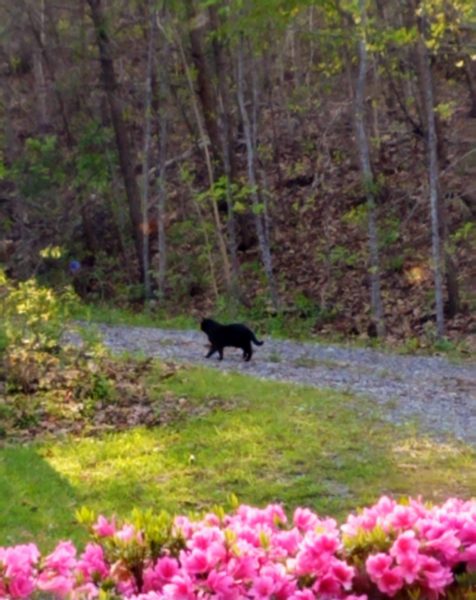
But I could be wrong about all this. All of it.
Even so, I like the idea that good students, scientists, remarkable artists, faith practitioners, and all those truly engaged in the business of living, never have a solution to begin with. That would defeat their quest for knowledge. They start with a compelling problem (which they know correctly) and work their way through modes of inquiry towards new measures, steps, and questions. Most fail many times before breaking ground. Others discover new things or ways than they set out to. Those who do not give up may eventually stumble across what we might call “the miraculous” and/or genius blossoms.
In this time of social distancing, I hope we’ll all take the time to delve inside us with a desire to find who/what we really are, capable of, to fumble and fumble and surprise ourselves that we’ve not known we have/we are until—
We stand in awe
Good health, restoration, creation, and renewal to all of us.
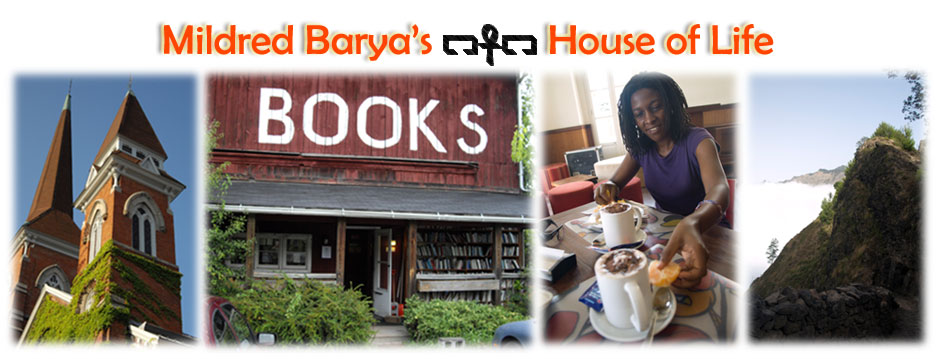



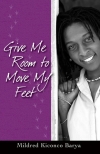
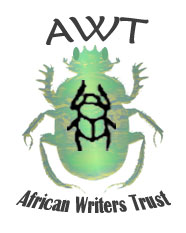
No comments yet.